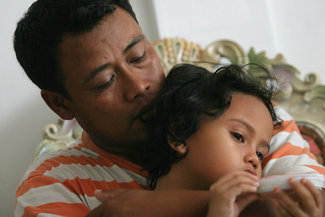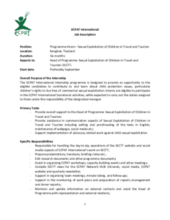

Displaying 381 - 390 of 753
UNICEF estimates suggest that over 1,100 Rohingya children fleeing violence in western Myanmar have arrived unaccompanied in Bangladesh since August 25.
This article describes a 60 Minutes interview with Tara Winkler, co-founder of Cambodian Children's Trust, about the exploitation of children in orphanages, the harm caused by orphanage tourism, and Australia's potential ban on orphanage tourism.
A Malaysian welfare organization has urged the federal government to set up a special body to regulate and control illegal orphanages in the country due to exploitation and abuse of the children living in the homes.
Despite good intentions, volunteers and donors from Australia and the larger international community are supporting orphanages separating children from their families. Australia is seeking to curb support for orphanages in countries like Cambodia, where the trafficking of children into orphanages is a common practice.
CRS is recruiting for a 4Children Cambodia Project Director to be based in Phnom Penh, Cambodia.
A pilot project is running five investigations of child sexual abuse in Bali, including two investigations at orphanages where staff are believed to be sexually abusing the children in their care.
ECPAT International is seeking a Programme Intern to support its Sexual Exploitation of Children in Travel and Tourism programme.
Malaysian NGO OrphanCare reports that orphanages are reluctant to work with baby hatch centers, which seek to find permanent homes for abandoned babies, due to fear that they will not have enough children to maintain the institutions once they give them up for adoption.
In this audio clip, Andrea Nave, Tara Winkler and Sinet Chan give evidence to the Australian Modern Slavery inquiry on orphanage tourism and trafficking of children into orphanages.
This chapter of Child Maltreatment in Residential Care discusses the findings from a multi-country study comparing the incidence of maltreatment in institution-based and family-based care and offers recommendations based on the findings.

